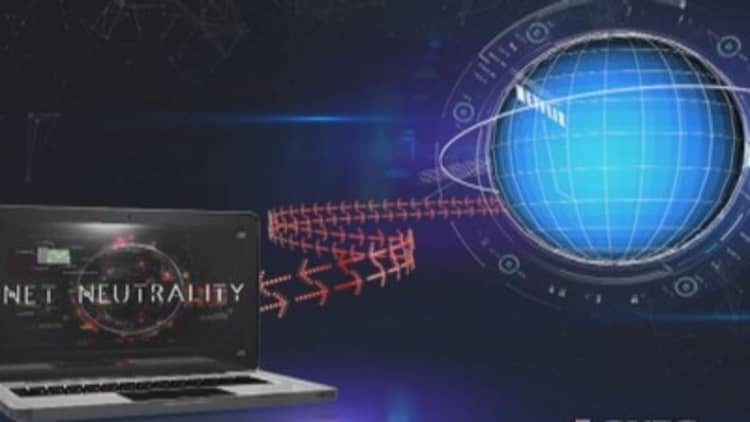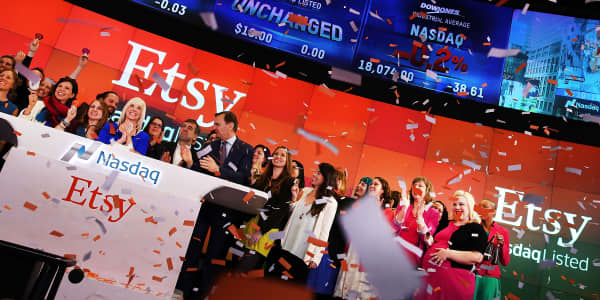It's no surprise that companies that rely on fast video streaming are against the FCC's controversial net neutrality proposal.
But it's not just the obvious candidates—Netflix, Amazon, Google, Yahoo, AOL—who are opposed. The list of companies who want to block the FCC proposal is much broader, including Etsy, Uber and AirBNB.
As it stands now, the FCC's proposal—initial public comments on it close Tuesday—would allow broadband providers to charge content companies for a so called "fast lane" of service.
However, in an effort to protect consumers and leave an even playing field, the proposal would also prohibit Internet providers from discriminating against legal Internet traffic and from blocking websites.
Read MoreWeb firms demand FCC action on net neutrality
But that isn't reassuring to advocates of a "free and open Internet" who are pushing for the Web to be regulated as a utility.
The issue, according the Internet Association, which represents 35 Internet companies, is that anything but vigilant protection of net neutrality will disadvantage Internet companies—start-ups in particular.
"Preserving the Internet's neutrality ensures that it remains an engine for economic growth, innovation, and democratic values.... Broadband Internet access providers, however, have the incentive to discriminate and block Internet traffic. They have the tools to carry this out. They also have the ability to hide their actions by distributing the blame to other stakeholders," the organization said in a 23-page document.
It's obvious why broadband-hogging services like Netflix and YouTube want net neutrality, but why is it so important for companies that do not stream large amounts of video, like Etsy, Uber or AirBNB?
In fact, smaller companies are worried that they won't be able to compete with giants like Amazon and Google, who have deep pockets and can therefore pay to have their data prioritized.
In a filing with the FCC, Etsy CEO Chad Dickerson wrote: "If the proposed rules were in place when Etsy was founded, we would never have achieved the success we have today. Etsy and other startups will suffer if the FCC allows some companies to negotiate priority or exclusive access to consumers."

(The company cites its inclusion as No. 3 on CNBC's "Disruptor 50" list as supporting the benefits of an open Internet.)
"According to CNBC, 'All of these companies entered traditional sectors and turned them upside down. It's not about one product or delivery method. It's the power of a company to displace the established incumbents in its own industry, prompting a ripple effect throughout its economic ecosystem,'" Dickerson wrote.
"If the FCC moves forward with the current proposal, it's hard to imagine the next Etsy getting enough of a toehold to take on established incumbents," he wrote.
The company notes that while its low fees—3.5 percent of each sale—were crucial in building an initial group of sellers, those same low margins would have prevented it from "paying for access to buyers," or the "fast lane." Conversely, Etsy says if it had been forced to pay, it would have had to set higher fees, which would have limited its reach. And while Etsy is photo-driven for now, the company says it's considering adding video.
Read MoreCommentary: Why we should be glad if net neutrality goes away
The FCC—and the Internet service providers who back the proposal, like CNBC parent company Comcast—stand by the power of a standard for "commercial reasonableness." But companies like Etsy aren't reassured.
The lines are being drawn in the sand ahead of Tuesday's deadline for initial comments, though the agency will accept responses on existing comments for the next two months, and is anticipated to make a final decision on its proposal by the end of the year.
—By CNBC's Julia Boorstin





